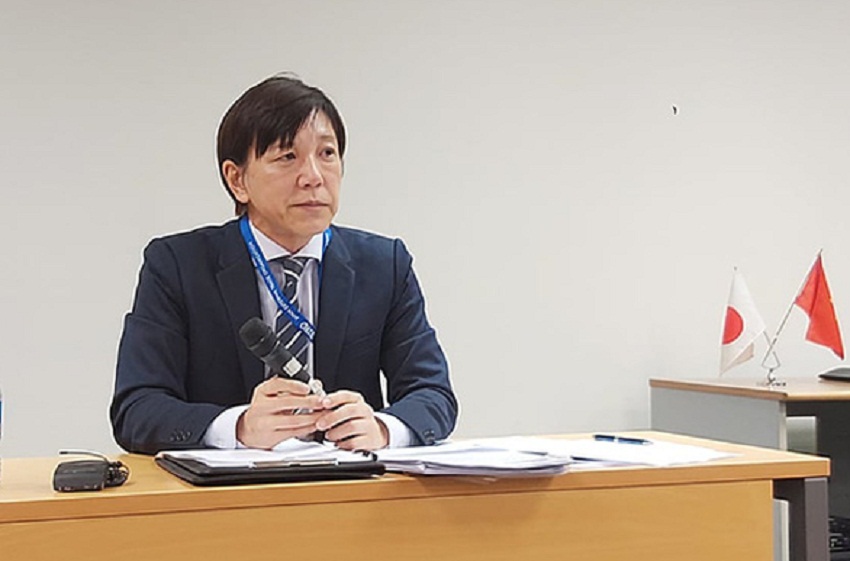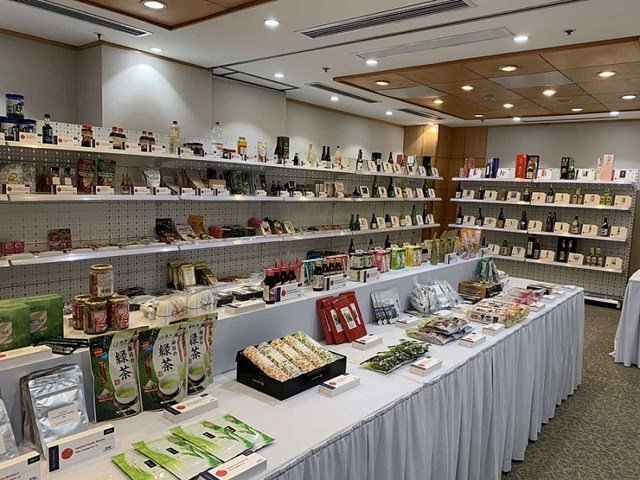A boost for Vietnam- Japan business cooperation
The business relationship between Vietnam and Japan has continually improved despite the COVID-19 pandemic. The Chief Representative of JETRO Hanoi, Mr. Takeo Nakajima, gave our reporter an exclusive about this information.

The Chief Representative of JETRO Hanoi, Mr. Takeo Nakajima
What do you think about the recent business partnerships between Vietnamese and Japanese companies, particularly in the food and beverage industries?
The business relations with Vietnam, including the food and beverage sectors, are one of Japan's fastest growing and prosperous.
Vietnam is a significant manufacturing base to meet regional and global demands. Japan is the 3rd largest FDI country for Vietnam by value. In the food and beverage sectors, notable manufacturing investments in Vietnam include Acecook, Nissin Foods, Ajinomoto, Suntory Pepsico, Taisho-HD, Kirin, and Yakult.
Vietnam is the eighth largest export destination for Japan, next to Germany. It is also the fifth largest export destination for agricultural and marine products (although industrial products are Vietnam's most common export items).
Regarding food and beverages, at the HS4-digit level, seafood ranks 19th, powdered milk and grains rank 24th, groceries rank 25th, and beverages rank 39th among the exported items from Japan.
To be more specific, mackerel ($56 million), tuna ($18 million), salmon ($14 million), infant formula milk ($85 million), processed foods ($71 million), supplements ($13 million), drinking water ($25 million) are among the top-selling products from Japan.
According to JETRO's survey last year, Vietnam is ranked 4th as the "Most Important Export Destination" for the Japanese.
In sum, Vietnam has become very important for the market, manufacturing base, and exporting destination.
The Covid-19 epidemic caused a disruption in Japan's supply chain. However, Vietnam is hardly an anomaly as more and more Japanese companies plan to or have already relocated their production bases from China to nearby nations. What must Vietnam do to entice these businesses? What are your thoughts on this fad?
At the end of 2021, JETRO surveyed the headquarters of more than 1,700 Japanese companies and found that Vietnam ranked second as "Countries They Expand Operations" next to the U.S. It is impressive that Vietnam is still the world's 30 - 40th largest economy. It became such important.
In terms of production shift from China to ASEAN, including Vietnam, the trend reflects several elements;
First is the cost increases in China. JETRO's survey reveals that front workers in manufacturing in China cost more than $12,000 annually, including compensation, which is triple higher than Vietnam's.
The second is political tensions and trade conflicts between the U.S. and China. The higher tariffs erode the competitiveness of Chinese products.
Third, the supply-chain disruption in the last several years accelerates enterprises' global networks to be diversified regionally. Depending on one source, one country and market may incur higher risks.
Forth, global energy and transportation cost hikes lead companies to establish more local production close to each market.
Lastly, quality production is possible in Vietnam and neighboring countries. More value-added production is possible in the region.
JETRO Hanoi to exhibit Japan-made products
The Vietnamese government (central and local) should enforce the attractiveness of Vietnam and lessen the risks and hurdles FDI companies face. The Japanese companies face the following risks today: Higher turnover of employees; Unstable energy and electricity; Complicated regulations and laws (worsen under COVID-19); Low local procurement rates and insufficient sourcing of parts and materials in Vietnam.
Could you please let us know what sort of initiatives JETRO will take in the near future to encourage economic interactions between the two nations and increase the accessibility of Japanese products to the Vietnamese market?
JETRO in Vietnam promotes business interactions between the two countries.
First, we assist Japanese goods and service exports to Vietnam to meet the growing demand in Vietnam. We keep arranging business matchings between Vietnamese companies, Japanese manufacturers, and service providers in various sectors.
Foods are just one pillar for us. From late August to October this year, JETRO conducts a Japanese food products showcase and business matching in Hoan Kiem, Hanoi. More than 220 new food and beverage products are to display. We carry similar business matching events in the healthcare service, houseware products, environmental equipment, digital content, and elderly businesses.
The second is the FDI promotion from Japan to Vietnam and from Vietnam to Japan. We collaborate with Vietnam's central governments, including MPI, MOIT, and MOFA, to hold investment promotion events, site visits, and a dialogue with the political leaders. We also cooperate with many Vietnamese and Japanese provinces, prefectures, and cities in this area.
Also, numerous Vietnamese companies have set up their offices and service entities in Japan. In particular, IT-related firms became significant players in Japan. In 2021 alone, Aht TechH, Techvify, and Bunbu started the services in major cities.
The third is a digital transformation space. We introduce prospective Vietnam startups to Japanese firms. Each side has a technology, idea, and market, seeking collaboration to increase their strengths. The recent case JETRO assisted was the joint project by a Japanese education firm, Gakken, and a Vietnamese ed-tech startup, KiddiHub.
Thank you so much!








